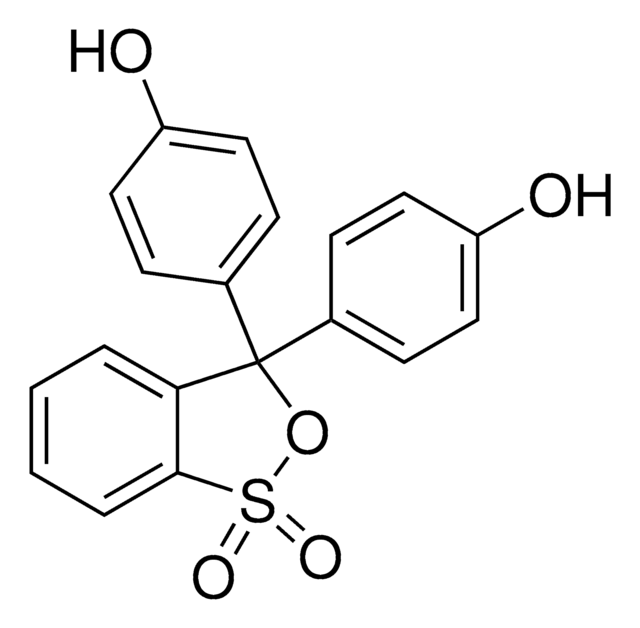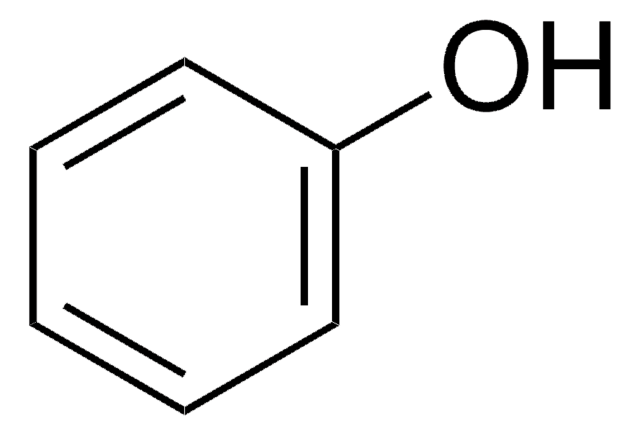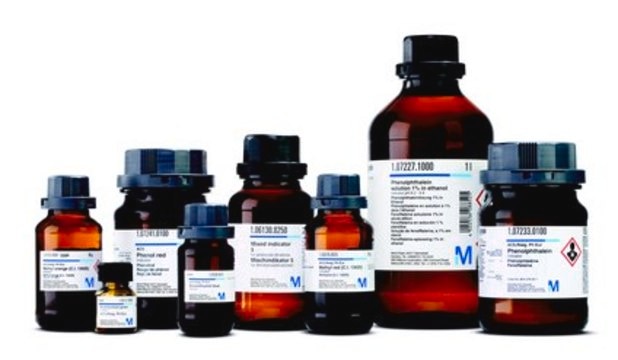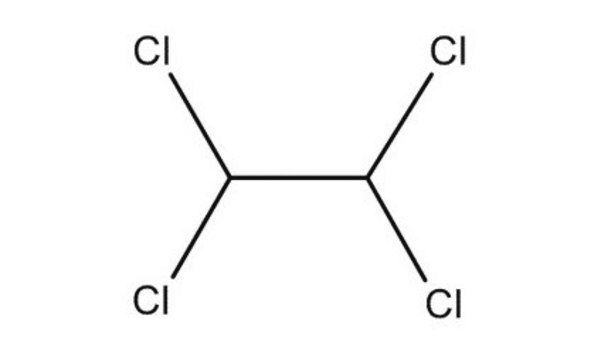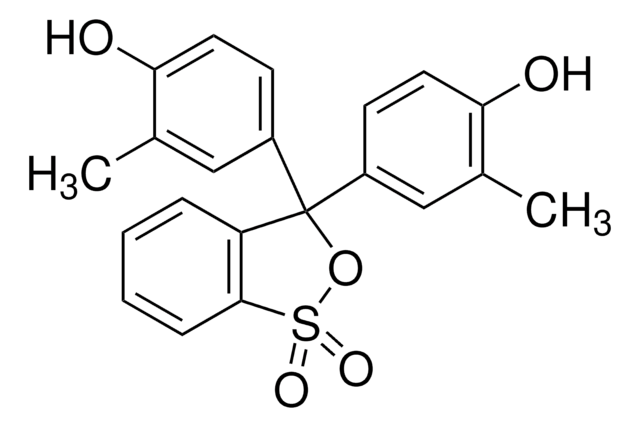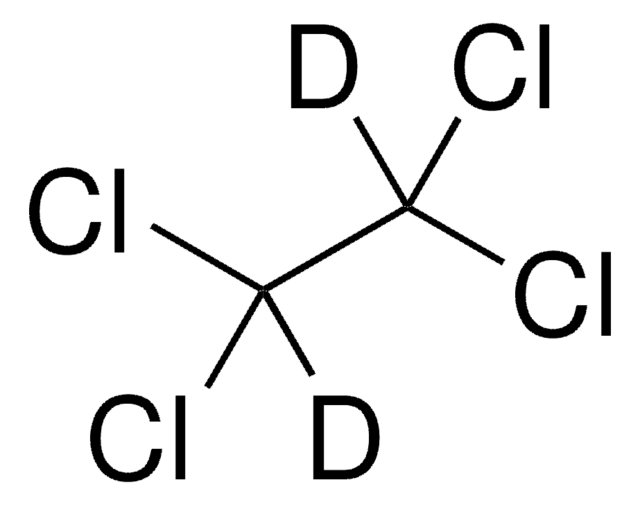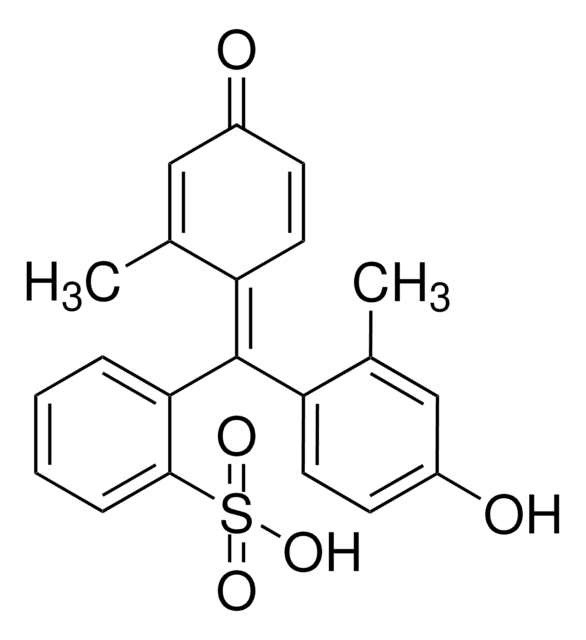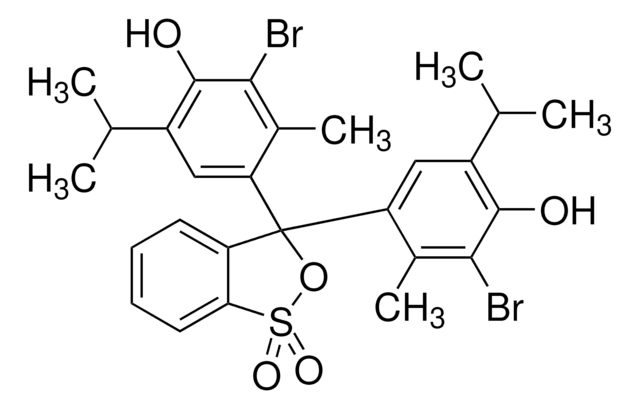114529
Phenol Red
ACS reagent
Synonym(s):
Phenolsulfonphthalein
About This Item
Recommended Products
grade
ACS reagent
Quality Level
form
powder
clarity of soln
passes test
technique(s)
titration: suitable
visual transition interval
6.8-8.2, yellow to red
solubility
water: 0.77 g/L at 100 °C
λmax
360 nm
557 nm (2nd)
ε (extinction coefficient)
≥10000 at 288-294 nm in H2O
≥55000 at 555-561 nm in H2O
≥7000 at 357-363 nm in H2O
application(s)
diagnostic assay manufacturing
hematology
histology
storage temp.
room temp
SMILES string
Oc1ccc(cc1)C2(OS(=O)(=O)c3ccccc23)c4ccc(O)cc4
InChI
1S/C19H14O5S/c20-15-9-5-13(6-10-15)19(14-7-11-16(21)12-8-14)17-3-1-2-4-18(17)25(22,23)24-19/h1-12,20-21H
InChI key
BELBBZDIHDAJOR-UHFFFAOYSA-N
Looking for similar products? Visit Product Comparison Guide
Related Categories
General description
Application
Phenol Red has been used for the preparation of phenol red gavage meal for measurement of gastric emptying in rats.
Biochem/physiol Actions
signalword
Warning
hcodes
Hazard Classifications
Skin Irrit. 2 - STOT SE 3
target_organs
Respiratory system
wgk_germany
WGK 3
flash_point_f
Not applicable
flash_point_c
Not applicable
ppe
dust mask type N95 (US), Eyeshields, Gloves
Choose from one of the most recent versions:
Certificates of Analysis (COA)
Sorry, we don't have COAs for this product available online at this time.
If you need assistance, please contact Customer Support.
Already Own This Product?
Find documentation for the products that you have recently purchased in the Document Library.
Customers Also Viewed
Protocols
Overview of polyacrylamide gel chemistry and detailed instructions for hand-casting polyacrylamide gels using TurboMix® Bis-Tris Gel Casting Kits
Our team of scientists has experience in all areas of research including Life Science, Material Science, Chemical Synthesis, Chromatography, Analytical and many others.
Contact Technical Service